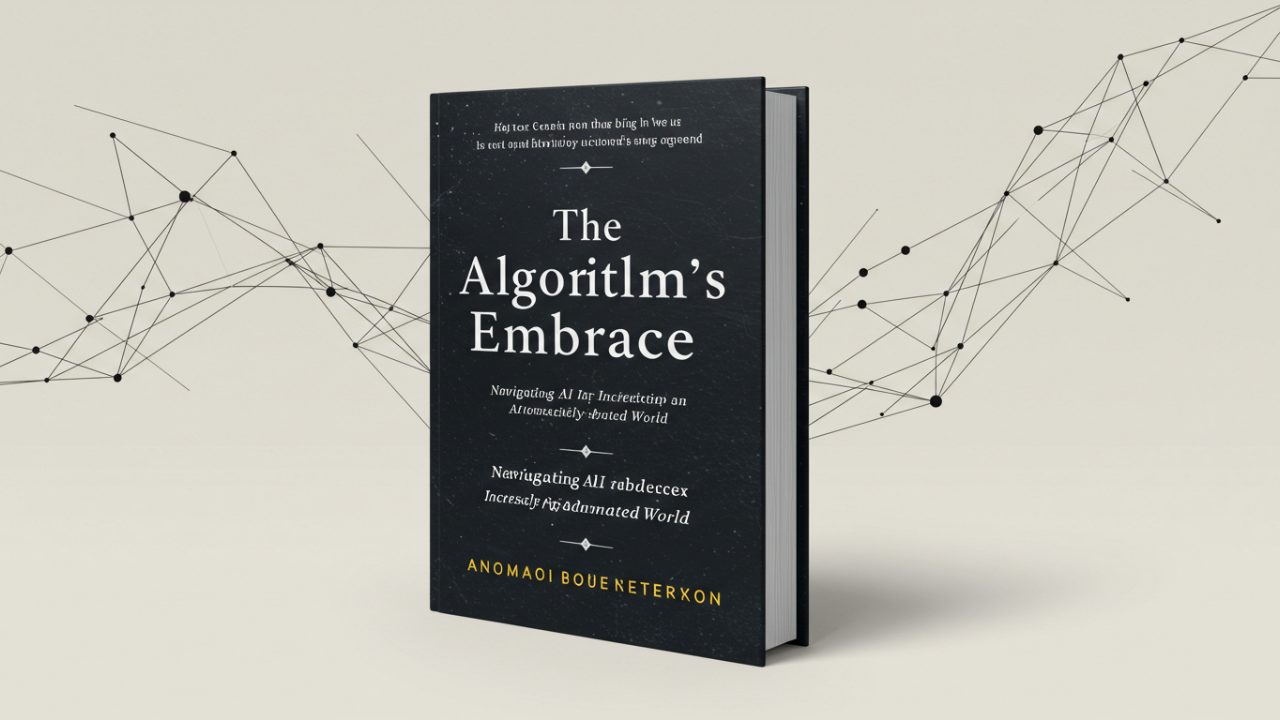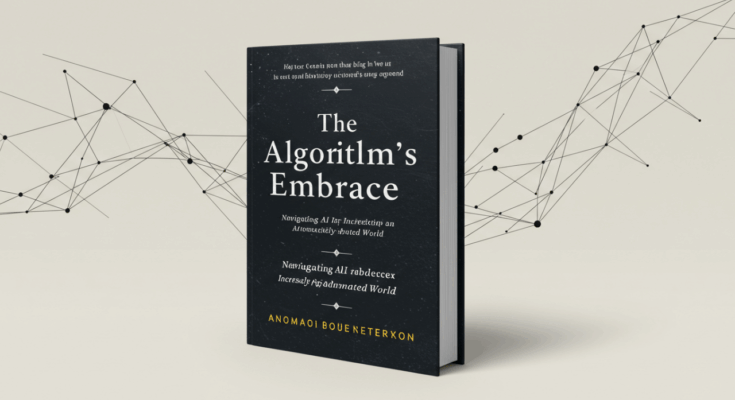Artificial Intelligence (AI) is no longer a distant concept confined to labs or sci-fi novels—it’s an integral part of our daily lives, quietly shaping how we work, connect, and make decisions. From personalized recommendations on streaming platforms to AI-driven traffic systems, algorithms are steering the course of our routines. This article explores how AI is transforming our world, offers practical ways to harness its benefits, and addresses the challenges of living in an automated age, providing actionable insights to thrive in this new landscape.
The Invisible Hand of AI
AI operates behind the scenes, often unnoticed, yet its impact is profound. It’s in the chatbot that resolves your customer service query, the algorithm that curates your social media feed, or the navigation app that reroutes you around traffic. By 2025, AI is expected to influence 85% of consumer interactions, according to industry estimates, making it essential to understand its role and potential.

AI in Daily Life: Seamless Integration
AI’s strength lies in its ability to process vast amounts of data quickly, delivering tailored experiences. For example, streaming services like Netflix use AI to analyze your viewing habits, suggesting shows with uncanny accuracy. Similarly, smart home assistants like Alexa adapt to your voice commands, learning your preferences over time to control lighting or play music intuitively.
To make the most of AI in daily life:
Personalize settings: Train AI assistants by providing feedback on recommendations to improve accuracy.
Explore new features: Experiment with voice commands or app integrations to expand functionality.
Stay updated: Regularly check for software updates to access the latest AI enhancements.
AI at Work: Boosting Efficiency
In workplaces, AI is automating repetitive tasks and enhancing decision-making. Tools like Grammarly refine your writing in real time, while project management platforms like Trello use AI to predict task completion times. A 2025 McKinsey report suggests AI could automate up to 30% of current jobs’ tasks, freeing workers for more creative endeavors.
To leverage AI at work:
Automate routine tasks: Use AI tools to handle scheduling, data entry, or email filtering.
Learn AI basics: Familiarize yourself with tools relevant to your industry, like Salesforce for sales or Tableau for data analysis.
Upskill strategically: Focus on skills AI can’t replicate, like emotional intelligence or creative problem-solving.
The Benefits of an AI-Driven World
AI’s embrace offers tangible benefits, from saving time to improving outcomes in critical areas like healthcare and education.
Time Savings and Convenience
AI streamlines tasks that once consumed hours. For instance, AI-powered email clients like Gmail prioritize messages and suggest replies, cutting email management time by up to 20%, per user studies. Similarly, navigation apps like Waze use AI to analyze traffic patterns, saving commuters an average of 10 minutes per trip in urban areas.
To maximize time savings:
Set up automation rules: Configure email filters or app notifications to prioritize urgent tasks.
Use AI schedulers: Tools like Calendly can coordinate meetings across time zones effortlessly.
Batch tasks: Group similar tasks, like responding to emails, and let AI tools streamline the process.
Transforming Healthcare
AI is revolutionizing healthcare by enabling early diagnosis and personalized treatment. Machine learning models analyze medical imaging to detect conditions like cancer with 95% accuracy, rivaling human experts. Wearables powered by AI, such as Fitbit, monitor vital signs and alert users to potential health issues, empowering proactive care.
To benefit from AI in healthcare:
Use health wearables: Track metrics like heart rate or sleep patterns to stay informed.
Share data wisely: Provide your doctor with wearable data for better diagnoses, but ensure apps comply with privacy standards.
Explore telehealth: Use AI-driven telehealth platforms for quick consultations with accurate symptom analysis.
Challenges of an AI-Driven World
While AI offers immense potential, it also raises ethical, privacy, and societal concerns that require careful navigation.
Privacy and Data Security
AI thrives on data, but this reliance raises privacy risks. In 2025, over 2.5 billion personal records were exposed in data breaches, many involving AI systems. Algorithms that track your online behavior or location can be exploited if not secured properly.
To protect your privacy:
Limit data sharing: Adjust app settings to minimize data collection, like disabling location tracking when unnecessary.
Use secure platforms: Choose apps with end-to-end encryption for sensitive tasks, like messaging or financial transactions.
Monitor accounts: Regularly check for unusual activity and enable two-factor authentication.
The Risk of Over-Reliance
Over-dependence on AI can erode critical thinking or human connection. For example, relying solely on AI recommendations for news or entertainment can create echo chambers, limiting exposure to diverse perspectives. A 2025 study found 60% of social media users feel their feeds reinforce existing beliefs.
To avoid over-reliance:
Diversify inputs: Seek out varied sources of information beyond AI-curated feeds.
Engage offline: Balance digital interactions with face-to-face conversations.
Question AI outputs: Verify AI-generated suggestions, especially for critical decisions.
Job Displacement Concerns
AI’s automation capabilities spark fears of job losses. While repetitive roles like data entry face disruption, new opportunities in AI development and oversight are emerging. The World Economic Forum predicts AI will create 12 million net new jobs by 2030.
To prepare for job shifts:
Learn AI-related skills: Take online courses in data science or AI ethics on platforms like Coursera.
Focus on human skills: Hone abilities like creativity or empathy, which AI struggles to replicate.
Stay adaptable: Be open to transitioning into roles that involve managing or collaborating with AI systems.
Navigating the AI Landscape
Embracing AI requires a balance of enthusiasm and caution. By understanding its capabilities and limitations, you can integrate AI into your life effectively while mitigating risks.
Building AI Literacy
Understanding how AI works empowers you to use it wisely. AI systems rely on algorithms trained on data, which can introduce biases. For instance, facial recognition systems have historically struggled with accuracy for non-white faces, highlighting the need for critical evaluation.
To build AI literacy:
Learn the basics: Read beginner-friendly books like “AI Superpowers” by Kai-Fu Lee or take free online courses.
Question biases: Be aware of potential biases in AI outputs, especially in hiring or recommendation systems.
Stay curious: Follow AI trends on platforms like X to understand real-world applications.
Advocating for Ethical AI
As AI becomes ubiquitous, advocating for ethical development is crucial. This means supporting transparent, inclusive, and accountable AI systems. Initiatives like the EU’s AI Act, implemented in 2025, aim to regulate high-risk AI applications, ensuring fairness.
To advocate for ethical AI:
Support transparent companies: Choose brands that disclose how their AI uses data.
Engage in discussions: Share your views on AI ethics in online forums or community groups.
Demand accountability: Back policies that hold companies liable for AI misuse.
Looking Ahead: AI as a Partner
The future of AI is not about machines replacing humans but augmenting our capabilities. Emerging technologies like generative AI and neural interfaces promise deeper integration, from writing assistants that draft emails to devices that translate thoughts into text. By approaching AI as a partner, we can shape a future that enhances human potential.
To prepare for what’s next:
Experiment with AI tools: Try generative AI platforms like Grok for creative or analytical tasks.
Set boundaries: Limit AI use in areas where human judgment is critical, like relationships.
Advocate for balance: Push for AI that complements, not overshadows, human creativity.
AI’s embrace is transforming our world, offering tools to simplify tasks, improve health, and foster innovation. By navigating its opportunities and challenges thoughtfully, we can ensure algorithms enhance our lives without defining them.
FAQ
How does AI impact my daily life?
AI influences daily tasks through personalized recommendations (e.g., Netflix, Spotify), navigation apps, and smart home devices. It saves time and tailors experiences but requires careful data management.
Is my data safe with AI systems?
Data safety depends on the platform. Use apps with end-to-end encryption, enable two-factor authentication, and limit unnecessary data sharing to protect your information.
Can AI take my job?
AI may automate repetitive tasks, but it also creates roles in tech development and oversight. Focus on skills like creativity or problem-solving to stay competitive.
How can I use AI to be more productive?
Use AI tools for task automation, like email filters or scheduling apps. Review AI suggestions regularly to ensure they align with your goals, and combine them with human judgment.
What’s the best way to learn about AI?
Start with beginner-friendly resources like online courses on Coursera or books like “AI Superpowers.” Follow AI discussions on platforms like X for real-world insights.



